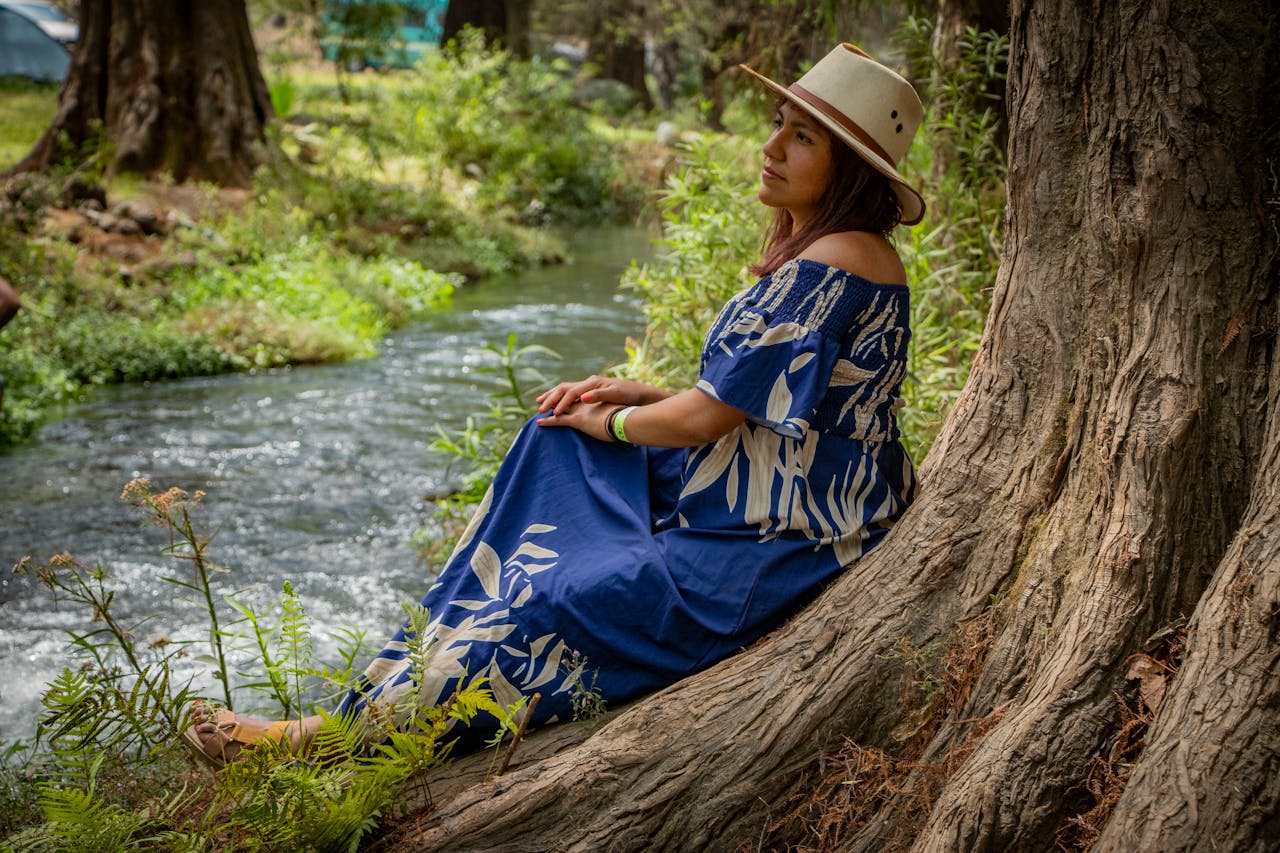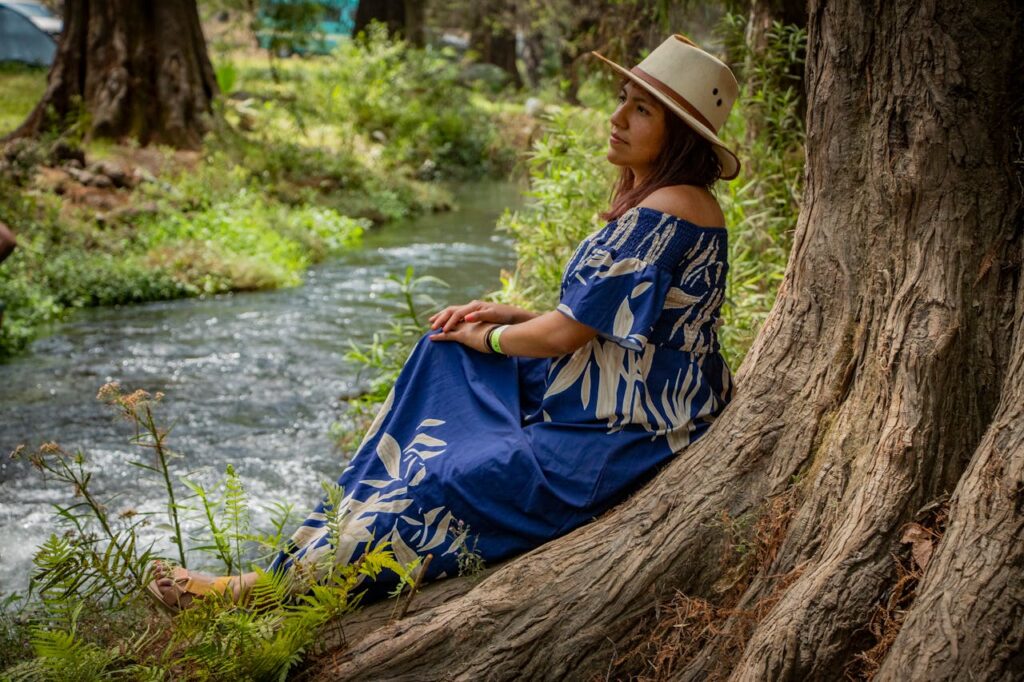Eco-anxiety is a real and deeply felt response, one that often brings a mix of fear, grief, helplessness and uncertainty when you’re faced with the reality of environmental crises. From wildfires and floods to species extinction and rising global temperatures, the scale of the problem can feel overwhelming. But here’s the thing: your emotional response is valid. It shows you care deeply about the planet and its future. That care, when channeled with intention, becomes a powerful motivator for action.
Recognizing the connection between environmental health and our well-being is a good starting point. The impacts of climate change, ranging from respiratory issues and increased allergies to rising mental health strain, underscore how closely we are all tied to the state of the planet. Once you become aware, you can begin to shape your response. And that’s where transformation begins.
Let’s explore how you can channel your awareness into simple, empowering actions. These steps reduce your footprint and help ease the weight of eco-anxiety by turning concern into meaningful change.
Low-Impact Living That Feels Empowering
When you’re dealing with eco-anxiety, one of the most grounding things you can do is take back a sense of control. Low-impact living doesn’t require a complete lifestyle overhaul. Instead, think of it as a series of small, sustainable swaps that collectively make a real difference. Switch to reusable grocery bags, reduce food waste and unplug electronics, when not in use.
You can start by focusing on your household and exploring budget-friendly lifestyle changes. Simple choices, such as reducing water usage, carpooling or opting for secondhand items, can help you establish lasting habits beneficial to both your wallet and the planet. As these actions become second nature, you’ll notice something: your confidence grows. Anxiety starts to fade when replaced by purpose.
The process becomes more manageable when you stop trying to control the uncontrollable and focus on what’s within reach. Low-impact living is less about sacrifice and more about reshaping your routine in ways that feel satisfying and doable.
Mindful Consumerism for a Better Future
Every dollar you spend has power. The products you choose, the companies you support and the habits you reinforce, all send a message. That’s what mindful consumerism is about: being aware of how your buying decisions shape larger systems. You don’t need to live a minimalist lifestyle to make an impact. Simply start asking questions before you buy: Who made this? How was it produced? Is it built to last?
Supporting businesses actively working to reduce their footprint is one way to feel more aligned with your values. Companies that adopt eco-friendly corporate responsibility practices demonstrate profit and purpose can coexist through thoughtful sourcing, energy conservation and operational efficiency. Even if you run a business yourself, adopting sustainability tools and strategies for small businesses, such as minimizing packaging waste or optimizing resource use, can be both approachable and impactful.
Remember, mindful consumerism isn’t about guilt. It’s about making choices that feel right for you and the future you’re helping to build. Every small, thoughtful decision creates a ripple effect. And those ripples matter.
Get Involved
Individual actions can make a difference, but joining with others can amplify your impact and alleviate the emotional burden of going it alone. Community-level efforts offer immediate, tangible results and a sense of shared purpose. These are spaces where you can connect with others who share your care and collaborate on creating lasting change.
If you’re unsure where to start, consider connecting with community environmental initiatives that welcome volunteers and offer hands-on ways to contribute through advocacy, education or event organizing. Taking part in small efforts like these lays the groundwork for creating a sustainable neighborhood over time. While change doesn’t happen overnight, steady community action builds momentum and, when people work together, it brings hope into focus, giving anxiety less room to thrive.
There are simple, supportive ways to begin a community garden, even if you’ve never grown a thing in your life. These projects make the process feel accessible and rewarding, offering space to connect, contribute and learn alongside others. As you begin engaging with people who share your concerns, you’ll likely find small actions, such as planting, organizing and showing up, help transform anxiety into something far more energizing.
The Kids Are Alright
One of the most encouraging ways to cope with eco-anxiety is to invest in the next generation. Today’s kids are growing up more aware, informed and determined to make a difference. Supporting them in their journey means providing the tools and knowledge they need to thrive as environmental leaders.
Start with conversations at home. Talk about nature. Model sustainable habits. Introduce them to educational opportunities focused on renewable energy and environmental science. Teaching kids about green technology doesn’t have to be overly technical; it can be hands-on, creative and empowering. Once they’re ready for the workforce, renewable energy education programs in universities, vocational schools and beyond, help prepare the next generation through engaging, real-world learning.
When youth understand they play a vital role in shaping the future, their eco-awareness grows into a powerful source of motivation and purpose. Raising eco-conscious kids means showing them how to act, not just worry, nurturing a mindset rooted in responsibility, resilience and a sense of curiosity. In turn, their optimism can help reinvigorate your own.
Conclusion: You’re Not Alone and You’re Not Powerless
Living with eco-anxiety is a sign of deep care and connection, and it reflects your awareness and concern for the world around you. That care is precisely what the world needs right now. Your actions, however small they may seem, are building blocks in the larger movement toward environmental balance.
While it’s easy to feel isolated in your concern, the truth is you’re part of a global community working toward the same goal. Caring for the planet goes beyond tracking your carbon footprint. It encompasses how you live, what you buy, how you connect with others, and how you raise the next generation, with every choice offering an opportunity to make a difference.
Source link
Katie Brenneman biofriendlyplanet.com



